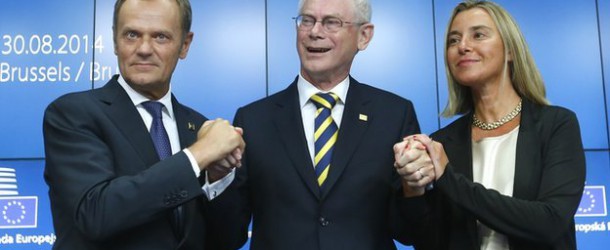Late last month (30 August, 2014), Donald Tusk was elected the President of the European Council succeeding the first permanent President of the European Council Herman Van Rompuy and is expected to assume office on 1st December. Donald Tusk has been the Polish Prime Minister for the second term now and one of the most pro-European leaders in the European Union. Although he is the first leader from Eastern Europe to be elected as the EU president, his election did not come as a surprise given his active contribution to both the EU and Poland. For instance, he has been one of the most vocal leaders on the Ukrainian crisis and a pro-Ukranian advocate. In addition, on the wake of the 2008 Global Financial Crisis, Poland was the only EU member country that did not fall into recession.
The election of Donald Tusk as President of the European Council by the leaders of EU member states could have been as a result of several reasons. In particular, since it is the role of the European Council President to control over the policy agenda of the Council, there must have been expectations that Tusk would preside over essential economic policies to assist the EU. Since his tenure as the Polish Prime Minister was characterised with economic stability even after the financial crisis, member countries must be expecting him to bring about similar policies upon the EU. In addition, he may be expected to preside over policies that express EU’s strong stance towards Russia given his pro-Ukranian sentiments. He has indeed urged European countries to stand against any forms of aggression used in interventions while referring to the conflicts in Ukraine. However, the EU agenda on climate change may be frustrated by Tusk as he has been opposed to the ambitious climate targets that have been set. This arises from his strong support of his country’s coal industry, which is a strong contributor to climatic change.
The election of Donald Tusk into the post has led to speculation that he will be a strong advocate of the EU project of Eastern Partnership. The Eastern Partnership was an initiative of both Poland and Sweden aimed at strengthening the relationship between the EU cooperation and other East European nations. The heads of member states of the Eastern Partnership were therefore in support of the election as they feel that Tusk will push for the increased economic cooperation between the EU and member states of Eastern Partnership. For instance, in congratulatory message to Mr. Tusk, the President of the Republic of Azerbaijan, Ilham Aliyev, exhibited confidence that the cooperation of the country and that of the European Union would be enhanced through the expansion of the relations between the EU and its Eastern neighbours.
Poland and Donald Tusk himself has a very strong relationship with Azerbaijan and other member states of the Eastern Partnership. For instance, during the meeting between the Azerbaijani Prime Minister, Artur Rasizade and Donald Tusk in 2010, Tusk stressed the importance of the two countries as partners. He argued that although the two countries had a very remote geographical relationship, they shared a historical memory. In fact, Donald Tusk stated that the good relationship that existed between the two countries was one of the reasons that Poland got engaged in the Eastern Partnership project. It was therefore the views of Tusk that the implementation of the project would lead to multiple benefits on Azerbaijan and other members of the Eastern Partnership such as simplified visa procedures and increased access to funds from the EU.
The Eastern Partnership is Poland’s first initiative introduced into the external relations system of European Union. The interests of Poland on the implementation of the Eastern Partnership program comes as a result of the geopolitical situation of the country. Being located on the Eastern side of Europe, the members of the Eastern Partnership are the neighbors of Poland. As Poland faced difficulties during the transformation process adjusting the requirment from EU, it could help eastern neighbours deal with these problems by offering more concrete action plans than any other EU member state. Furthermore, Poland and Ukraine share a 529 km border and have very strong bilateral relations. Poland as a strategic partner of Ukraine will serve as advocates in the process of deepening of the EU-Ukraine relations. Other members of the program are also economic partners with Poland which explains the devotion of Poland to implement the program. Being the largest border country in eastern part of European Union, Poland would become the main representative of EU’s eastern policy. In particular, since Poland is the 6th biggest economy in the EU, the consideration of its neighbors will be very important to its economy. For instance, the promotion of the free trade between the EU and the members nations of the Eastern Partnership will ensure that Poland has a ready market for its goods.
Since Mr. Tusk has been a strong advocate of expanded cooperation and integration of the EU with its Eastern neighbours, his election as President of the European Council is likely to have a positive impact on Eastern Partnership program. This will be as a result of the economic interests that Poland has in the Eastern Partnership. However, given the limited power of the President to directly influence the EU policies, the influence that Tusk may have on this matter remains to be seen.
Aytan ALIYEVA
SAM expert

























































